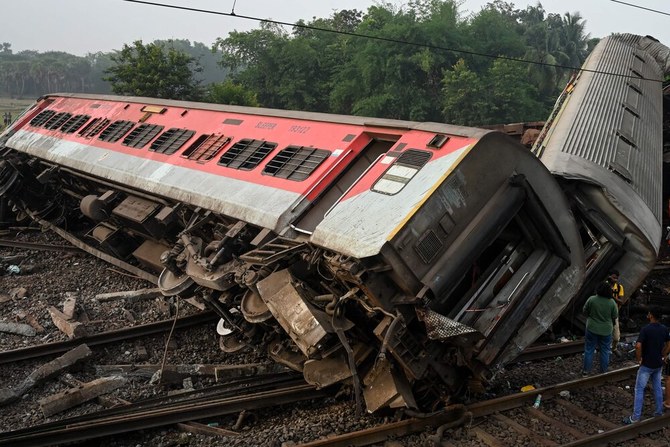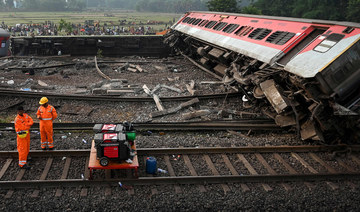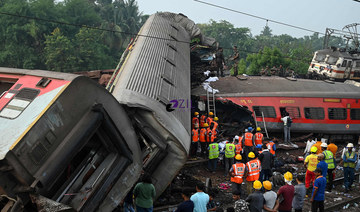NEW DELHI: Nearly 300 people have died and hundreds of others were injured in eastern India when three trains collided in one of the worst rail disasters in the country’s history, authorities said on Saturday.
The accident took place in the Balasore district of Odisha state on Friday when the Coromandel Shalimar Express from Kolkata to Chennai derailed after hitting a parked freight train. Another train, the Howrah Superfast Express, traveling in the opposite from Yesvantpur to Howrah, then hit the overturned carriages.
The Coromandel Shalimar Express had 2,000 people on board and the Howrah Superfast Express at least 1,000, according to their passenger manifests.
FASTFACT
The state government of Odisha sent 200 ambulances and hundreds of first responders to the scene as it mobilized dozens of doctors to attend to the injured, saying that the accident was a ‘disaster of unimaginable scale.’
The state government of Odisha sent 200 ambulances and hundreds of first responders to the scene as it mobilized dozens of doctors to attend to the injured, saying that the accident was a “disaster of unimaginable scale.”
The South Eastern Railway, which has jurisdiction over the area, confirmed on Saturday afternoon that at least 261 people were killed in the crash.
“Another 650 injured passengers are being treated at various hospitals in Odisha,” SER spokesperson Aditya Chowdhury told reporters.
Rescuers who continued to dig through debris to find survivors feared that the toll might still increase.
Dr. Sudhanshu Sarangi, director-general of the Odisha Fire Service, said the aftermath of the accident was “extremely distressing” and many of the rescued were critically injured.
“So many dead bodies, the smell, the rigor mortis, it’s terrible. We won’t be able to sleep for a few nights. It’s a terrible tragedy,” he told Arab News.
A day of mourning was observed in Odisha on Saturday as top officials, including Prime Minister Narendra Modi and Railway Minister Ashwini Vaishnaw, arrived in the crash site.
The accident has caused disruptions in the movement of hundreds of trains from eastern India to the rest of the country.
India has the largest network of railway tracks in the world with over 13 million people traveling 70,000 km of track in over 14,000 trains every day.
Each year, several hundred accidents are recorded on the country’s railways, but the one in Odisha was the worst since August 1999, when two trains collided near Kolkata, killing at least 285 people.
In August 1995, at least 350 people are killed when two trains collided 200 km from Delhi.
The country’s worst train disaster took place in June 1981, when seven of the nine coaches of an overcrowded train fell into a river during a cyclone in the eastern state of Bihar.














